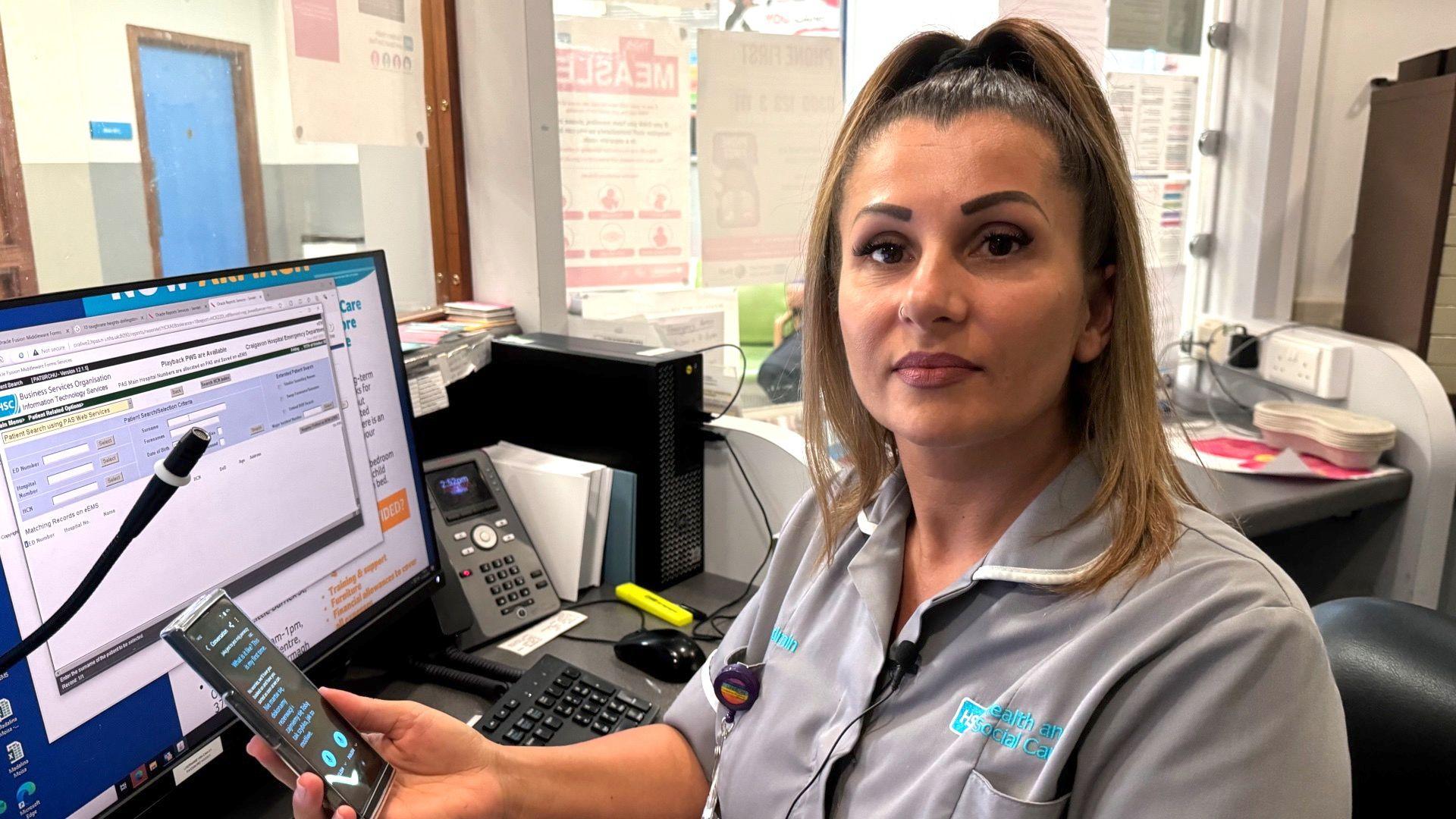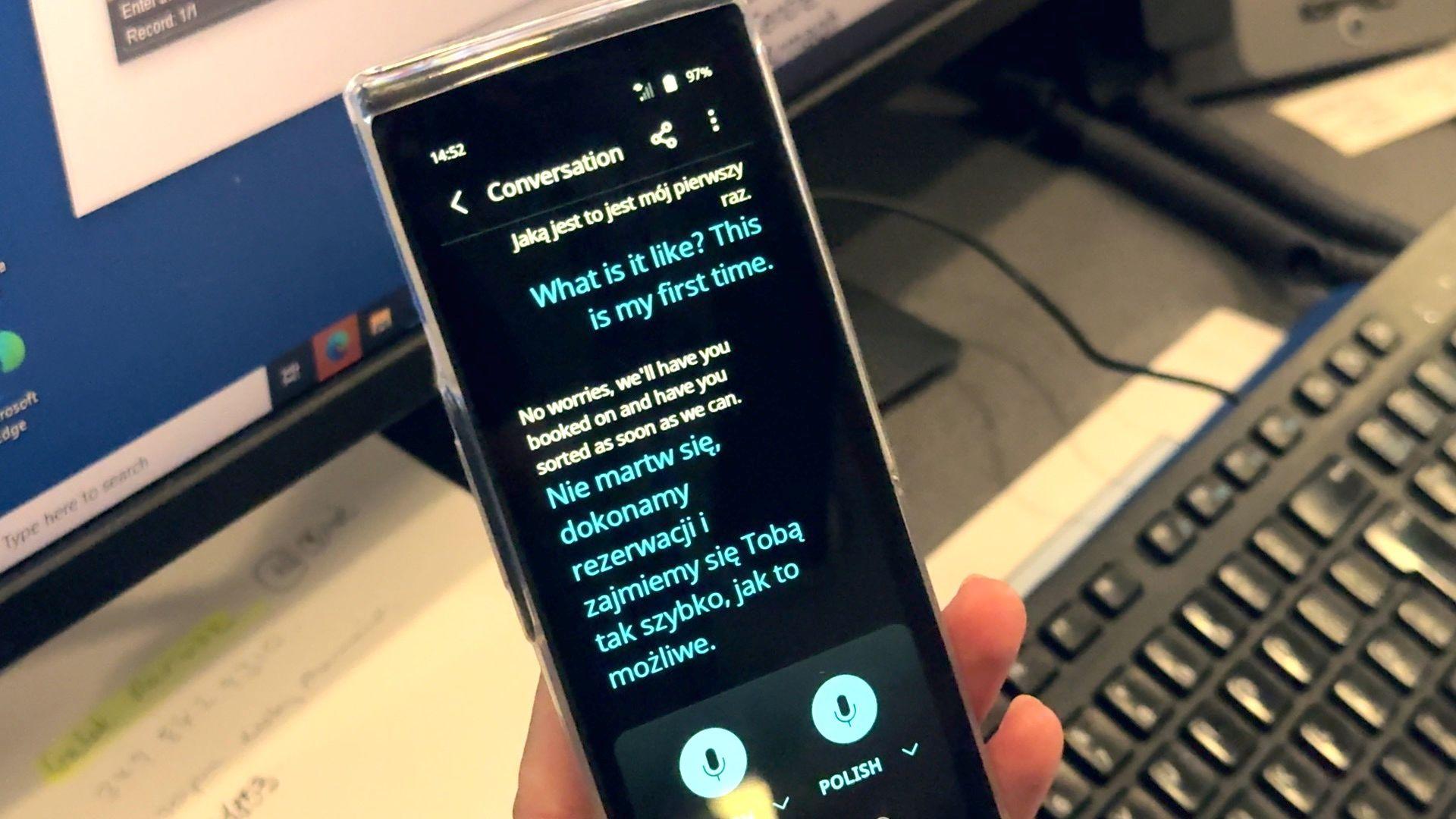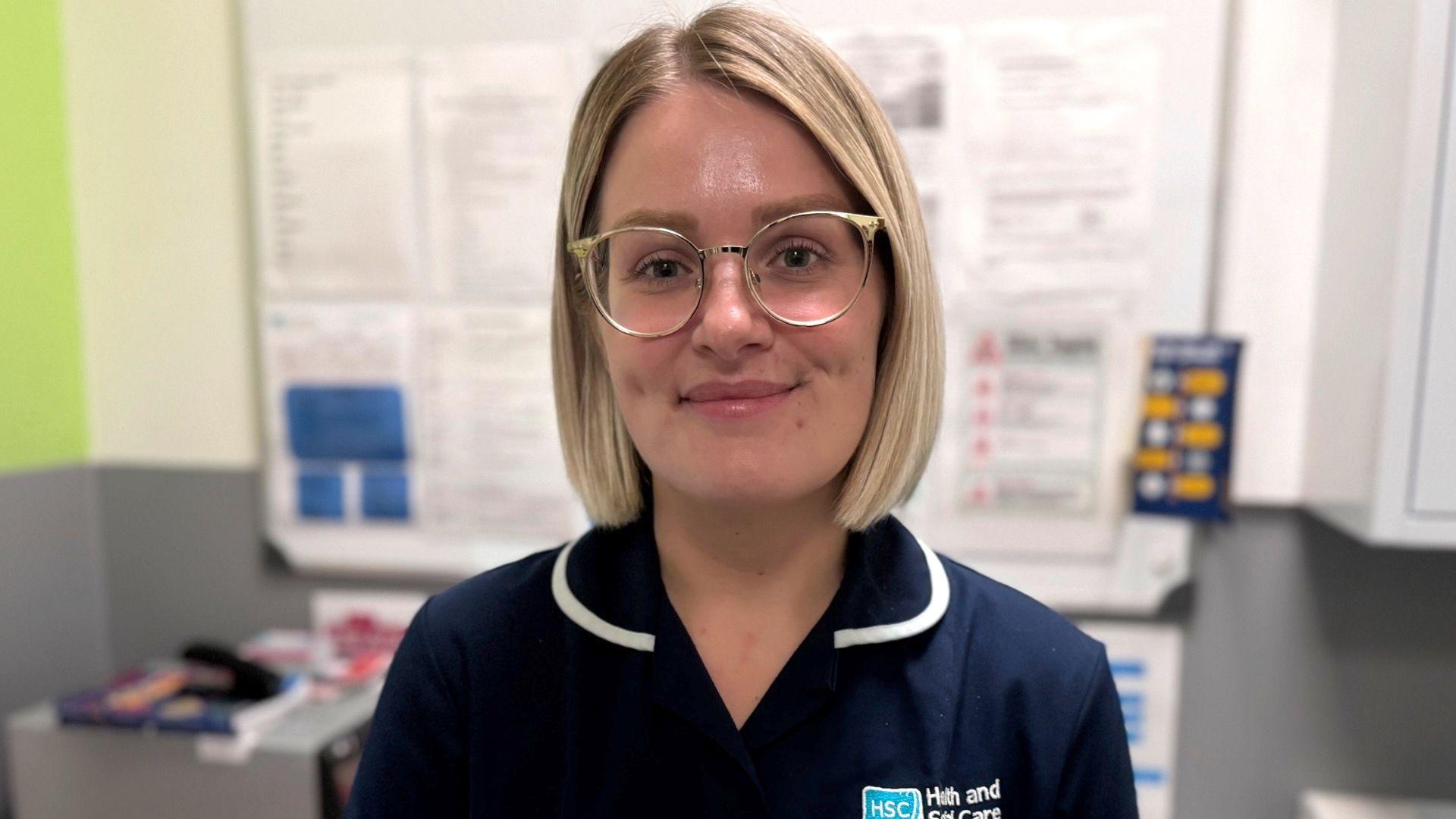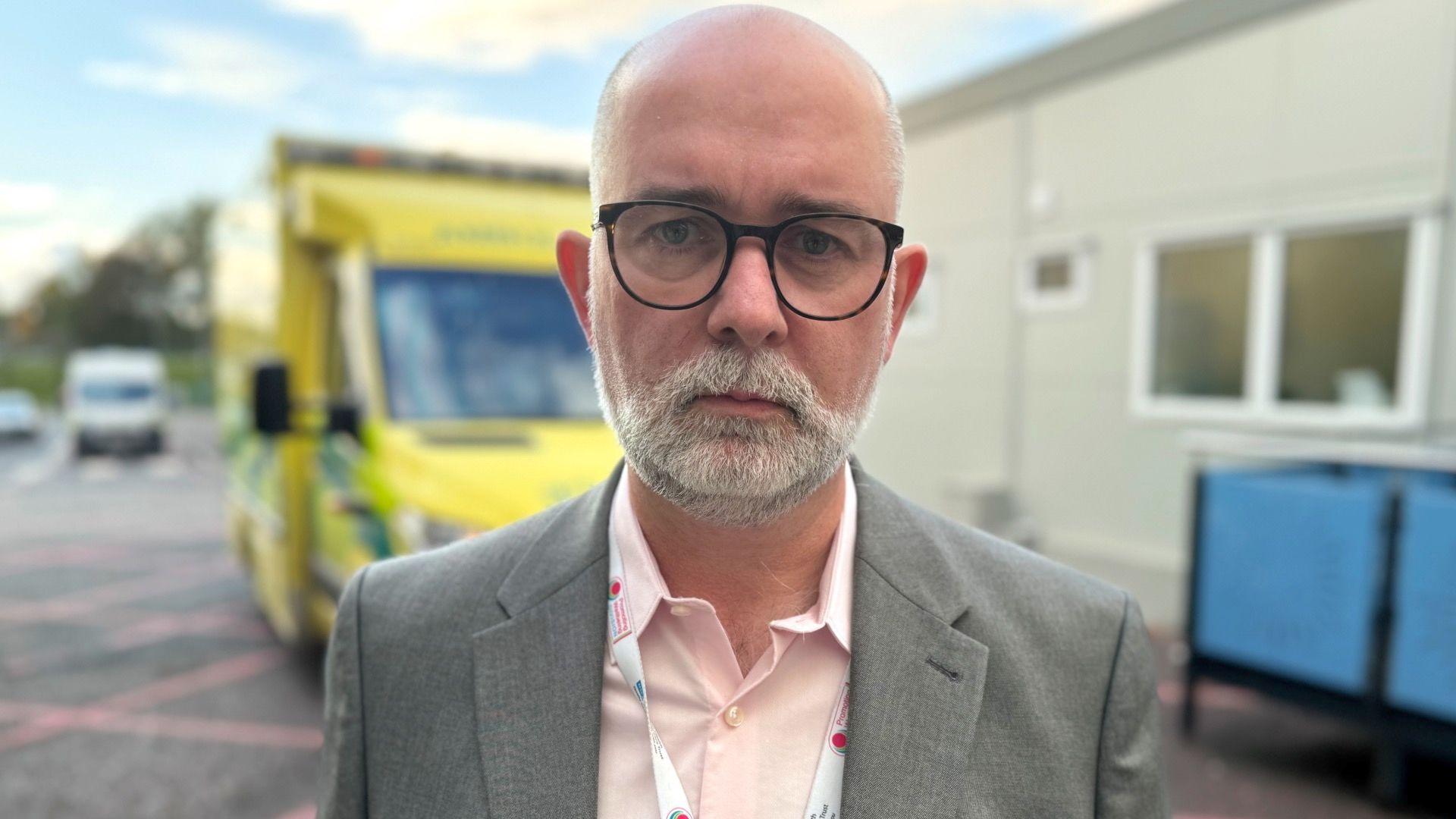Translation tech tackles health language barriers

Madalina Moisa is originally from Romania and works as clerical staff at Craigavon Hospital’s emergency department
- Published
A new device is helping to improve communication between patients who do not speak English and healthcare staff in parts of Northern Ireland.
The pocket-sized digital kit can translate up to 108 languages through audio or text, in real time.
The handheld technology is about the size of a mobile phone and is part of a pilot project being rolled out in the Southern Health and Social Care Trust.
It is currently being used in the hospital emergency departments of Craigavon and Daisyhill, as well as some GP practices in the trust.

The translation device is currently being used in the hospital emergency departments of Craigavon and Daisyhill, as well as some GP practices
Madalina Moisa is originally from Romania and works at the front desk of Craigavon Hospital’s emergency department.
She has lived in Northern Ireland for eight years and now speaks a number of languages, including English.
She has been using the translation device regularly.
The device works by the patient speaking into a small microphone and it relays what that person has said to the healthcare professional in English, and back again to the patient in his or her native language.
“It has been really helpful when there is that language barrier, to get between patients even quicker, and it takes a lot of the pressure off and the frustration away," Madalina said.
“Being in pain or worried about your health is hard enough, but not being able to express yourself is even harder, so this device is making a big difference.”
Diverse population
The Southern Trust provides services across the five council areas of Armagh, Banbridge, Craigavon, Dungannon, and Newry and Mourne.
It has one of the most ethnically-diverse patient populations in Northern Ireland.
Towns like Dungannon and Craigavon have seen an increase in the number of families from outside the UK in the past 20 years, largely due to increased employment in local food processing, engineering firms and healthcare settings.
“We have a very diverse patient population, just now we had someone from Poland in the emergency department," added Madalina.
“I don’t speak Polish but the device was able to translate in real time that they were worried about chest pain. So it’s really valuable.”

Stacey Hardy is the lead nurse of the emergency department in Craigavon
Many hospitals in Northern Ireland already employ people to carry out interpreting services.
Stacey Hardy is the lead nurse of the emergency department in Craigavon.
She said the translation device is there to enhance these services, not replace them.

Gerard Rocks says he hopes the translation device can be rolled out in healthcare settings across Northern Ireland
She added: “The face-to-face translation and the phone services are very much still being used, but when those resources are stretched, this allows us to avoid delays in emergency care.”
BBC News NI has previously reported on the delays and waiting times faced by emergency departments across Northern Ireland.
To date the translator device has been delivered to at least 20 GP practices within the Craigavon area and there are plans to roll it out further in Newry, Armagh and Dungannon in the coming weeks.
Gerard Rocks, is assistant director for promoting wellbeing in the Southern Trust.
He said: “It’s the first time this device has been used in health and social care settings, but it’s our ambition that eventually it will be used across Northern Ireland.
“We have an increasingly diverse population and we need to provide services for our patients regardless of their ethnicity, cultural background or their language.”
Madalina Moisa believes initiatives like the translation device are a positive step in the health service to assist ethnic minorities, particularly following scenes of racist violence during the summer.
“It’s not going to change things overnight, but it shows people, that wherever you are from, there are efforts being made to try understand people and give them as much help as possible.”